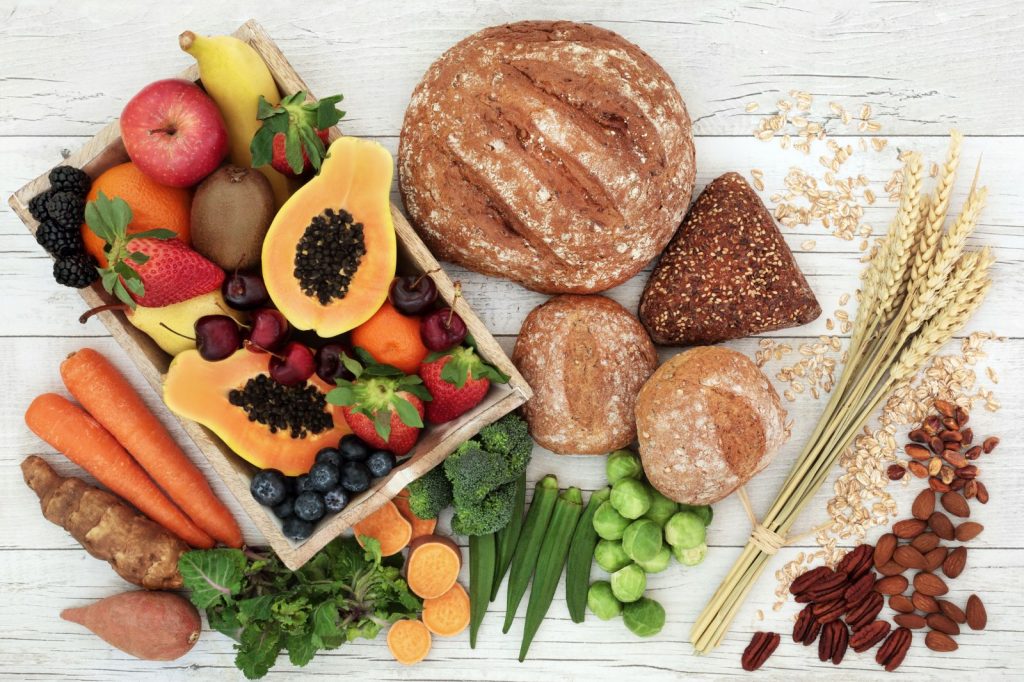Shilpa Joshi, RD January / 31 / 2019

Carbohydrates are divided into:
Simple Carbohydrates are sugars which may be monosaccharides (only one sugar unit) like glucose and fructose, and disaccharide (two sugar units) such as lactose or sucrose (common sugar). Sugars provide a rapid source of energy, i.e. they are metabolised rapidly in the body for energy. They are commonly found in different forms of sugars and jaggery, fruits, milk, honey, maple syrup, palm sugar from palm sap, grains like sweet sorghum and sweet corn, root vegetables like beet etc. Starch like corn starch may also be processed into corn syrup, corn sweeteners, and glucose. It may also be converted to High Fructose Corn Syrup using enzymes.
Sugars and sugar-containing substances are used to obtain a sweet taste. Various sugars and sweet substances have different sweetness with glucose being less sweet than common sugar (sucrose) whereas fructose is much sweeter. That is why corn syrup produced from starch consisting glucose and maltose is not as sweet as high fructose corn syrup.
Carbohydrates provide energy and foods containing these are nutritious because they also provide other essential nutrients like vitamins, minerals, proteins and dietary fibre. When these sources are refined, other nutrients are decreased and carbohydrates get concentrated. When whole wheat flour or atta from which chapati and roti are made, is refined you get maida which contains much less bran and hence less dietary fibre, minerals and vitamins. However, maida is made because bran interferes with the leavening process and refined flour has no problem making very light and fluffy bread or donut as it does not slow down leavening of dough by yeast. But in the process the nutritive value is reduced of white bread or any other product made of refined flour including cakes, pastries or even naan, the fluffy light Indian bread like roti.
Sugars are present in fruits as well but there are many other nutrients including vitamins, minerals and dietary fibre. Eating fruits is better in spite of sugars not just because of other nutrients but as they contain good proportion of soluble dietary fibre, which slow down the uptake of sugars in blood thereby resisting a spike. This makes consumption of fruits with sugars healthier. However, when fruits are converted to juice, a lot of fibre is removed to make them flowing and clear. This loses a lot of their benefit from a health point of view.
Glucose needs insulin for its metabolism and when a big load of glucose enters the blood it puts a lot of load on insulin. Cells need to produce more insulin. In type 1 diabetics, insulin production is less by body so they need to control glucose level in the blood by insulin injections. In type 2 diabetics insulin is less effective in glucose metabolism. So the rate at which glucose enters blood is important. If it is too rapid, then blood glucose level shoots up. Fructose does not require insulin for its metabolism but there are other adverse effects including that it causes insulin resistance.
Complex carbohydrates contain longer chains of sugars like glucose and others. Starch is a polymer of glucose whereas cellulose is also a polymer of glucose bonded differently and cannot be digested by humans. Inulin is a polymer of fructose present in chicory root. Pectin is a polymeric chain of different sugars and found in fruits
Most complex carbohydrates take longer time to digest and so commonly they don’t lead to a rapid rise in blood glucose. Soluble and insoluble dietary fibres with complex carbohydrates in the foods like grains and pulses are not only useful in controlling blood glucose levels but also regulate bowel movements.

Some tips to include complex carbohydrates in the diet :
1. Choose whole grains over refined grains like maida. Multigrain atta or breads, oats, jowar, bajra, ragi are good alternatives to maida.
2. Avoid too much of sugar, glucose, honey, jaggery in the diet to avoid extra calories
3. Choose whole fruits instead of fruit juices. Whole fruits provide necessary fibre and vitamins. They can be eaten as dessert.
4. Choose wide range of vegetables daily. They add color, variety and flavour to diet.
5. Replace meat with beans.
Majority of the Carbohydrates in the diet should come from complex Carbohydrates rather than simple Carbohydrates. Carbohydrates are often blamed for weight gain, this has led to a bad reputation of carbohydrates in the population. Despite this we cannot ignore the fact that it is a major source of energy to the body. Low carbohydrate diet or cutting out carbohydrates completely from the diet puts a risk of nutritional deficiencies and further health problems. Low carbohydrate diets usually are high in proteins and fats, which increases the risk of heart diseases. Both complex and simple Carbohydrates are good in their own way, it is just important to balance their quantity and quality in the diet. About 50-60% of the daily total calories should come from carbohydrates to achieve an optimum diet.
